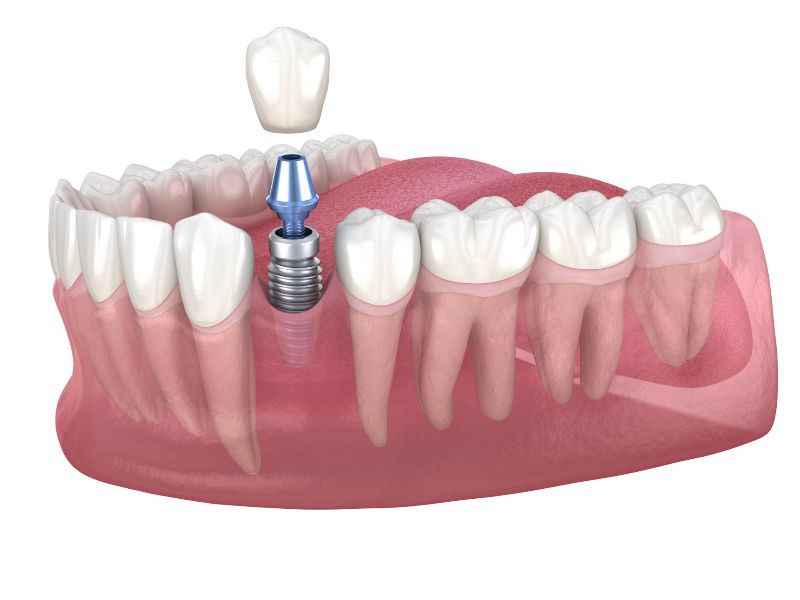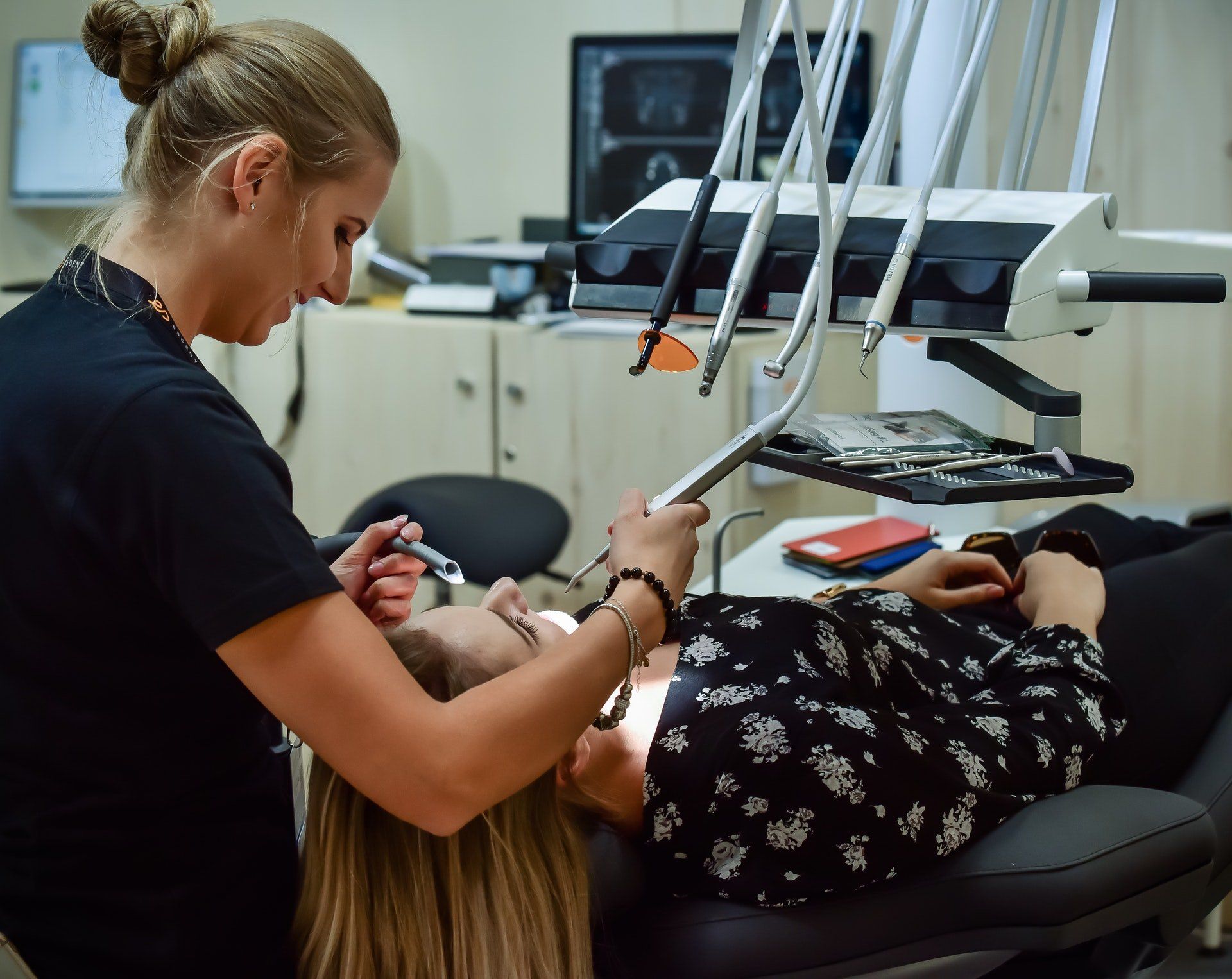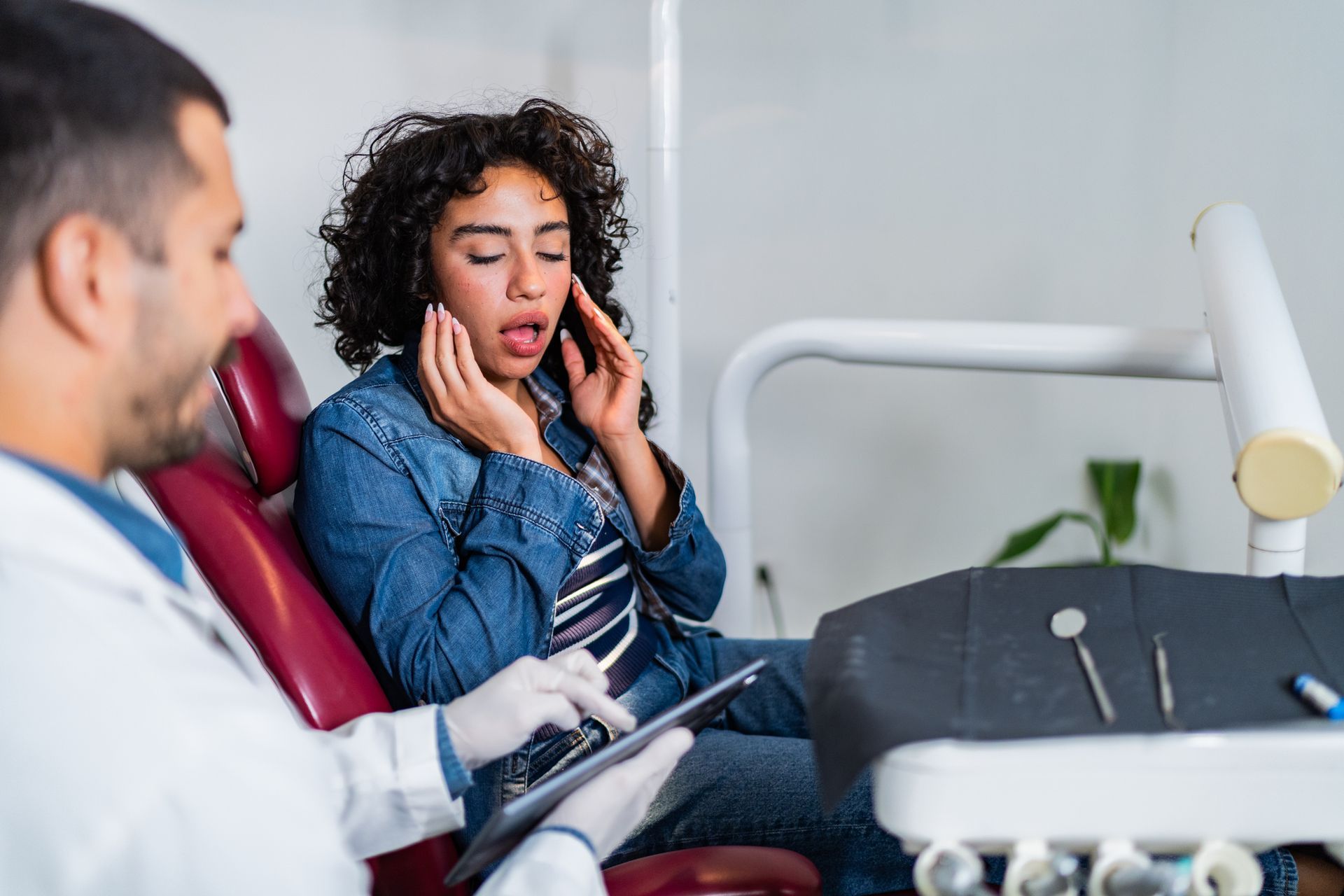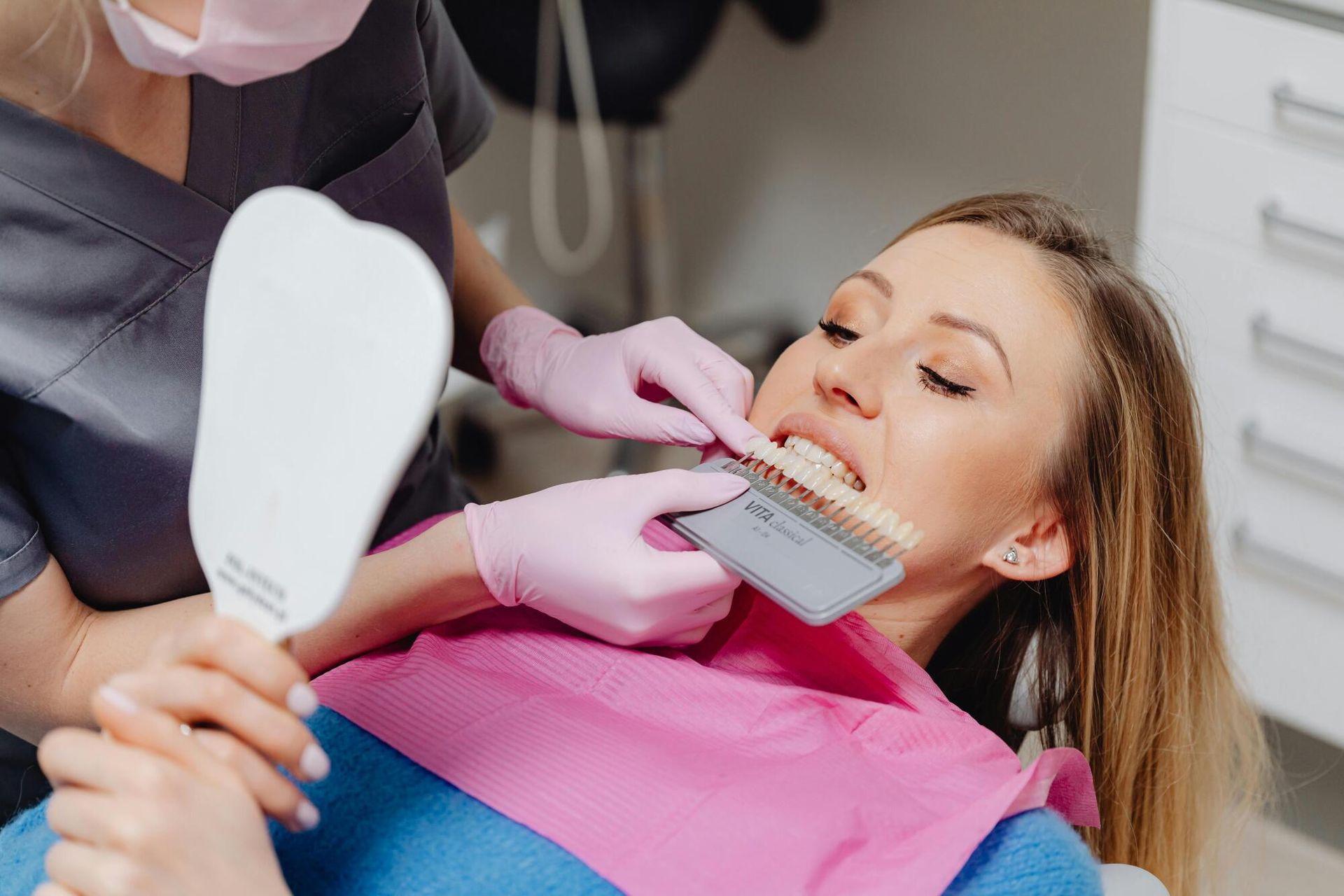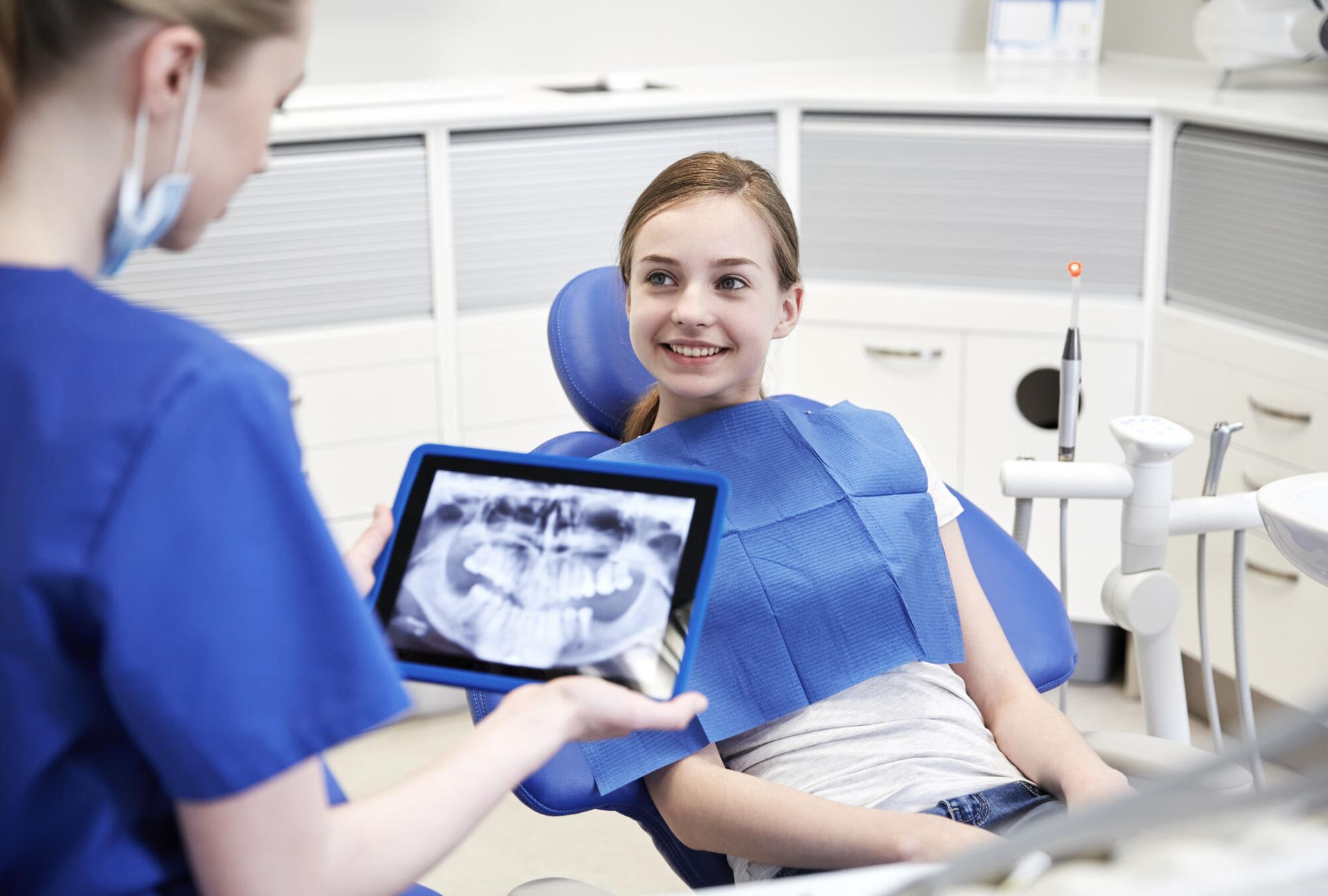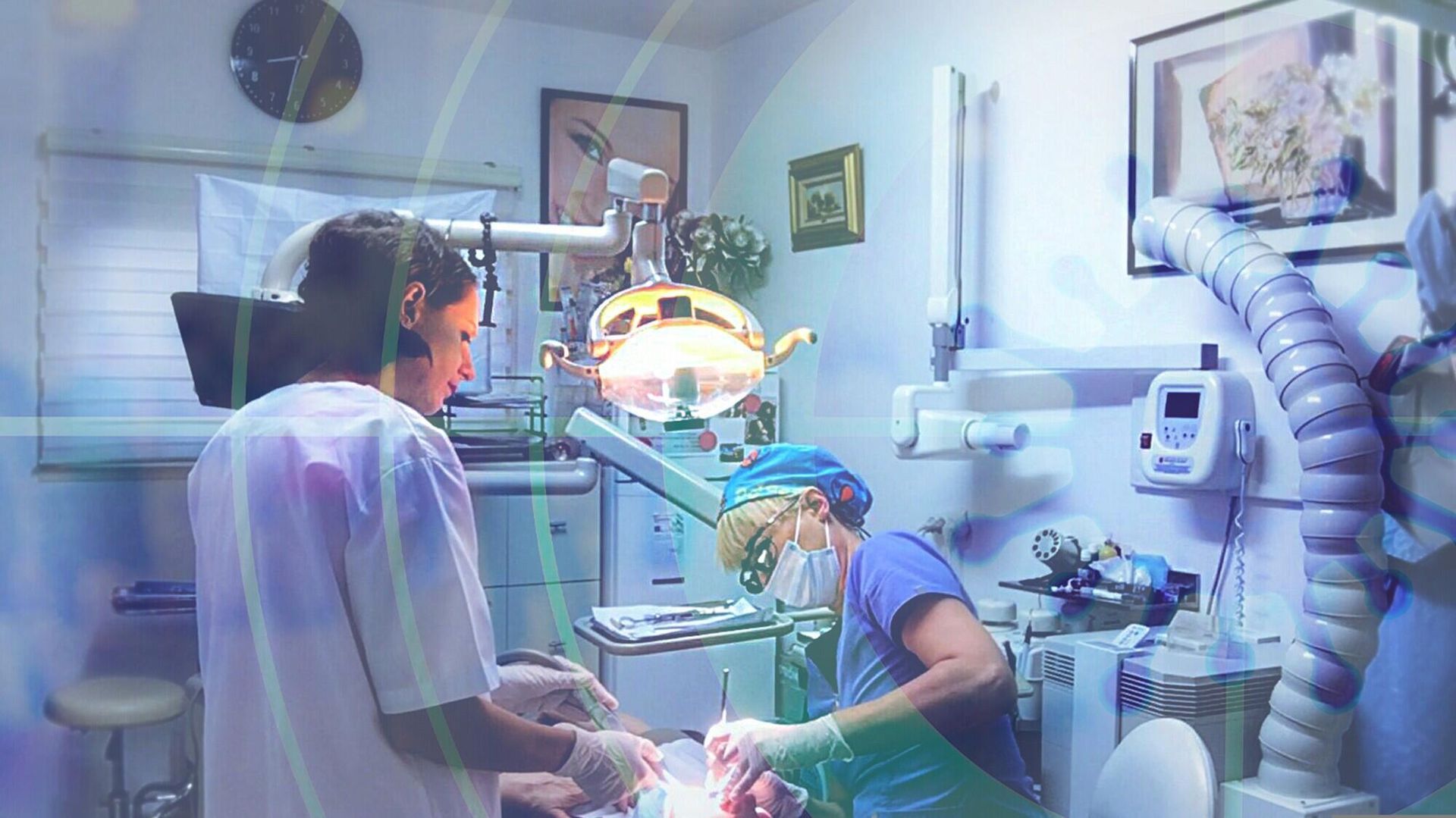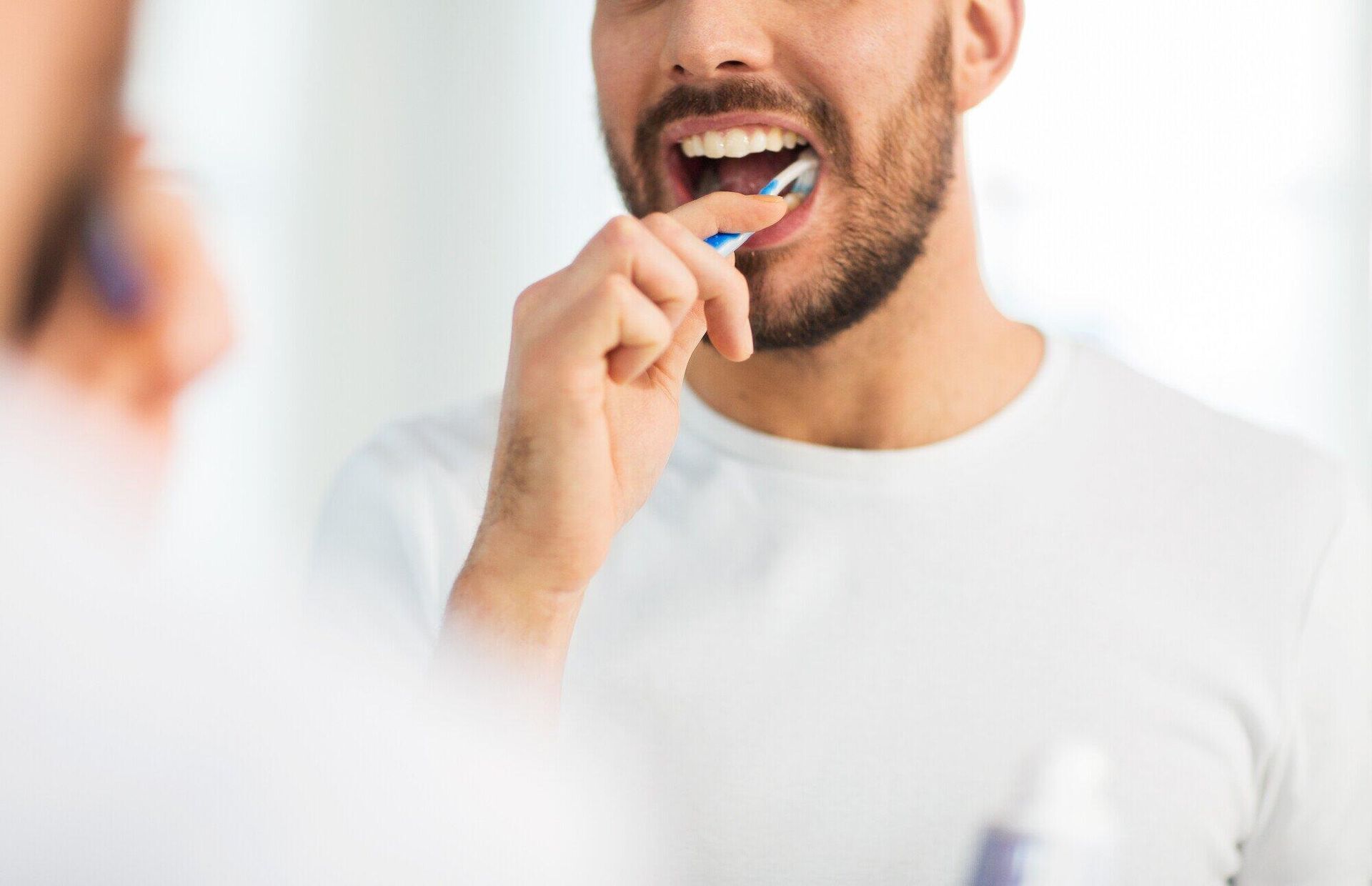How to Maintain Optimal Oral Health Between Dental Visits
Does this sound familiar? You visit your dentist twice a year, expecting a clean bill of oral health, only to hear the dreaded news: more cavities. You think you're doing everything right between visits, so what's the issue?
The problem isn't regular checkups, it's what's happening between them.
Maintaining good oral health outside the dentist's office is crucial in keeping your teeth and gums healthy. Between visits, you can prevent cavities, gum disease, and bad breath, but it requires consistent habits.
This helpful guide explains what's needed to take excellent care of your mouth between dental visits.
Oral Health Means More Than Clean Teeth
While biannual visits to the dentist for exams, X-rays, and cleanings are important, they are not the only part of your oral health.
These visits can help with detecting many oral health issues, including:
- Tooth decay
- Gum disease
- Infections
But, when your oral care routine is lacking, you're more susceptible to these conditions.
To further complicate matters, gum disease is linked to:
- Diabetes
- Heart disease
- Stroke
- Respiratory disease
- Cancer
- Alzheimer's disease
Fortunately, preventive care helps you control your oral health by reducing inflammation and harmful bacteria. This not only benefits your mouth but also has a positive overall impact on your entire body.
Since your dentist only sees you a couple of times a year, it's your responsibility to protect your oral health the rest of the time to prevent cavities and other issues.
Nutrition and Oral Health
Your diet plays a significant role in maintaining healthy teeth and gums, which is why it's essential to focus on a balanced diet. Sugary and acidic foods can lead to tooth decay and enamel erosion, but when you eat the right nutrients, you can work to protect and even repair your teeth.
Foods rich in calcium and Vitamin D are excellent choices. These include:
- Dairy products
- Leafy greens
- Fortified cereals (just nothing artificial or sugary)
These foods help support strong teeth and healthy jawbones, which are essential for oral health maintenance between dental cleanings.
Vitamin C, found in fruits such as oranges and strawberries, also helps maintain healthy gums by promoting collagen production and healing.
When you eat crunchy fruits and vegetables, including apples and carrots, it works to stimulate the production and flow of saliva. This helps to naturally clean your mouth and neutralize acids.
The Best Daily Oral Hygiene Habits
When you establish an at-home oral health routine between regular checkups, it becomes your best defense against oral health issues. But what does that look like? Here are some tips for a dental care routine to keep your teeth and gums at their healthiest:
Brush Twice a Day
In general dentistry, frequency of brushing is only half the battle; technique is just as important. Using a soft-bristled toothbrush and fluoride toothpaste is highly recommended.
Using a 45-degree angle, apply gentle strokes to your gums, covering all surfaces of your teeth. Aim to brush for two full minutes. It might help to set a timer or play a short song to keep track of time.
Floss Once a Day
Floss once a day to remove plaque and food particles stuck between your teeth and under your gumline, which are areas that toothbrushes can't reach.
Skipping flossing allows bacteria to thrive, especially in spots prone to gum inflammation and cavities.
You can use:
- Traditional floss
- Floss picks
- Water flossers
Whatever you choose, just use it consistently every day.
Mouthwash Is a Key Tool
Don't skip this step, as mouthwash can help reduce harmful bacteria in your mouth while strengthening your gums. Just remember that mouthwash should be used in combination with brushing and flossing, not as a substitute for them. It's best to avoid mouthwashes with high alcohol content if they cause your mouth to become dry.
Focus on Your Tongue and Gums
Every day, carefully brush your gumline.
Brush along the gumline with care, this is often where plaque builds up and causes gum disease. Just don't brush too hard, as this can damage your gums or cause gum recession.
Bacteria also love to hide on your tongue. Use a tongue scraper or your toothbrush to gently clean your tongue daily.
Don't Smoke
Smoking is harmful to the entire body, including your mouth. Since it reduces blood flow to your gums, they struggle to heal properly, increasing the risk of gum disease. Tobacco use also stains teeth and leads to persistent bad breath while damaging the delicate tissues on your tongue.
Smoking can also cause:
- Tooth loss
- Increase the likelihood of infections
- Significantly raises the risk of oral cancer (among other types of cancers and health conditions)
The best thing you can do for your body and oral health is to quit smoking.
Common Oral Health Mistakes to Avoid
Even though you might mean well with your oral hygiene practices, there are plenty of ways they can harm your dental routine.
For starters, brushing too hard wears down enamel and irritates gums, as mentioned earlier. Additionally, rinsing with water after brushing can dilute fluoride, which is why some dentists recommend spitting but not rinsing.
This is typically safe for most people, but it's essential to consider a few potential side effects. For example, ingesting large quantities of fluoride, regardless of the type of product, can be dangerous.
You may experience:
- Nausea
- Abdominal pain
- Diarrhea
These side effects are more common when children ingest fluoride products intended for adult use only.
It's also recommended to replace your toothbrush every three to four months. Additionally, avoid chewing hard candies or ice, as these can chip your teeth or lead to cracks.
When Is The Best Time to Brush?
Brushing twice a day is a recommended guideline between dental cleanings, but the time of day you brush is just as important. Many people wonder if it's okay to brush their teeth after meals, but this depends on the type of meal they ate. You may be tempted to brush after each meal or snack, but this can cause more harm to your oral health than it helps.
Avoid brushing immediately after eating anything acidic. This includes foods and beverages such as:
- Citrus fruits
- Tomatoes
- Soda
- Wine
- Acidic salad dressings
These items cause your enamel to become temporarily softened. If you brush your teeth right away, the enamel is vulnerable, which means it can be worn down.
Instead, rinse your mouth with water after eating and wait at least thirty minutes before brushing your teeth. This allows your saliva to neutralize the acid, so your enamel can re-harden on its own.
Brush After Sticky or Sugary Meals
Conversely, it's generally okay to brush your teeth after you eat any type of sugary food. This includes:
- Dried fruit
- Caramel
- Candy
Just make sure what you ate isn't acidic.
Sugary foods are known for clinging to your teeth, which means they can cause bacteria that lead to decay. If you're unsure whether these foods contain anything acidic, just rinse your mouth with water right after eating and brush when it's safe to do so. This is a great habit to adopt around holidays or parties when sugary foods are plentiful, as it helps to prevent cavities.
Don't Forget to Clean Your Dental Appliances
Regardless of the type of dental appliance you wear, always keep it clean. This includes:
- Retainers
- Clear aligners such as Invisalign
- Night guards
- Dentures
Clean dental appliances are just as important as brushing your teeth.
These devices sit in your mouth for hours at a time. If you don't clean them properly, they can quickly become breeding grounds for bacteria.
The result? Gum irritation, bad breath, and even infection.
How to Clean Dental Appliances
Each appliance has its own cleaning regimen. Here are some examples depending on the device:
Retainers and Clear Aligners
After removing them from your mouth, thoroughly rinse these dental appliances. You should clean them once a day with a soft toothbrush.
Use clean, non-abrasive soap. Avoid using toothpaste, as it can be too harsh. Additionally, avoid using hot water, as it can warp the shape of these devices.
Night Guards and Mouthguards
After use, thoroughly rinse these devices and let them air dry. Use a gentle cleanser and a brush to clean them every few days as part of good oral hygiene.
Dentures
Use a special denture brush to clean your dentures daily. Additionally, soak them in a special denture-cleaning solution overnight. If your dentist instructs you otherwise, follow their directions instead.
Remember never to eat with any type of removable appliances in your mouth unless your dentist says it's okay. Instead, store them in a clean case when you're not using them.
Now You Know How to Get Healthy Teeth
Everyone wonders how to get healthy teeth, and it starts at home. Remember that it's not just about preventing tooth decay with annual dental exams, what matters is preventative care all year long.
Core Dentistry is devoted to helping patients achieve the smile of their dreams. We don't just fix teeth, we transform smiles, courtesy of our cutting-edge technology and warm, welcoming environment. We treat all clients like family, one smile at a time.
Schedule a consultation with our office and experience the dental transformation Core Dentistry offers.




